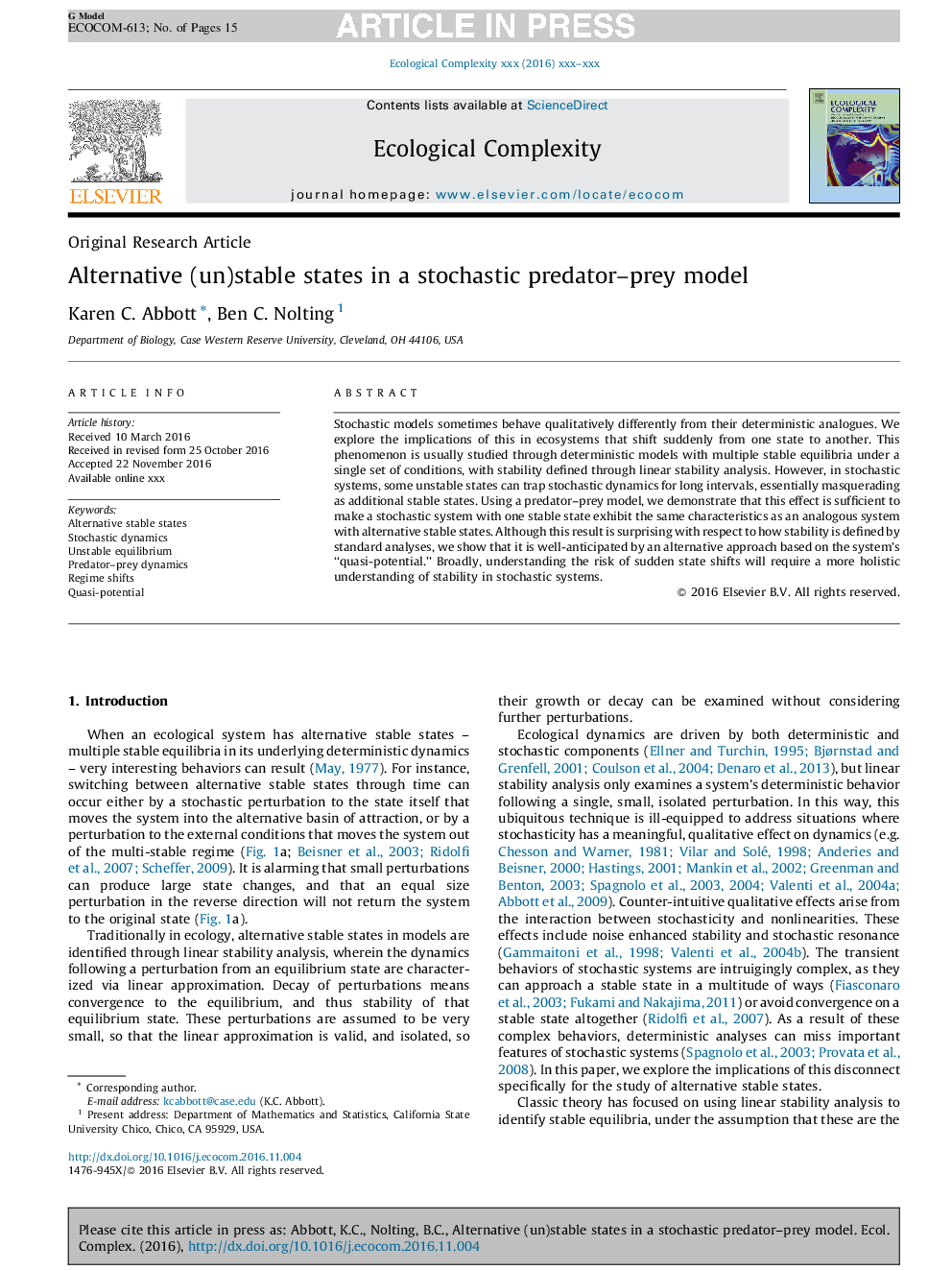| Article ID | Journal | Published Year | Pages | File Type |
|---|---|---|---|---|
| 8844860 | Ecological Complexity | 2017 | 15 Pages |
Abstract
Stochastic models sometimes behave qualitatively differently from their deterministic analogues. We explore the implications of this in ecosystems that shift suddenly from one state to another. This phenomenon is usually studied through deterministic models with multiple stable equilibria under a single set of conditions, with stability defined through linear stability analysis. However, in stochastic systems, some unstable states can trap stochastic dynamics for long intervals, essentially masquerading as additional stable states. Using a predator-prey model, we demonstrate that this effect is sufficient to make a stochastic system with one stable state exhibit the same characteristics as an analogous system with alternative stable states. Although this result is surprising with respect to how stability is defined by standard analyses, we show that it is well-anticipated by an alternative approach based on the system's “quasi-potential.” Broadly, understanding the risk of sudden state shifts will require a more holistic understanding of stability in stochastic systems.
Keywords
Related Topics
Life Sciences
Agricultural and Biological Sciences
Ecology, Evolution, Behavior and Systematics
Authors
Karen C. Abbott, Ben C. Nolting,
